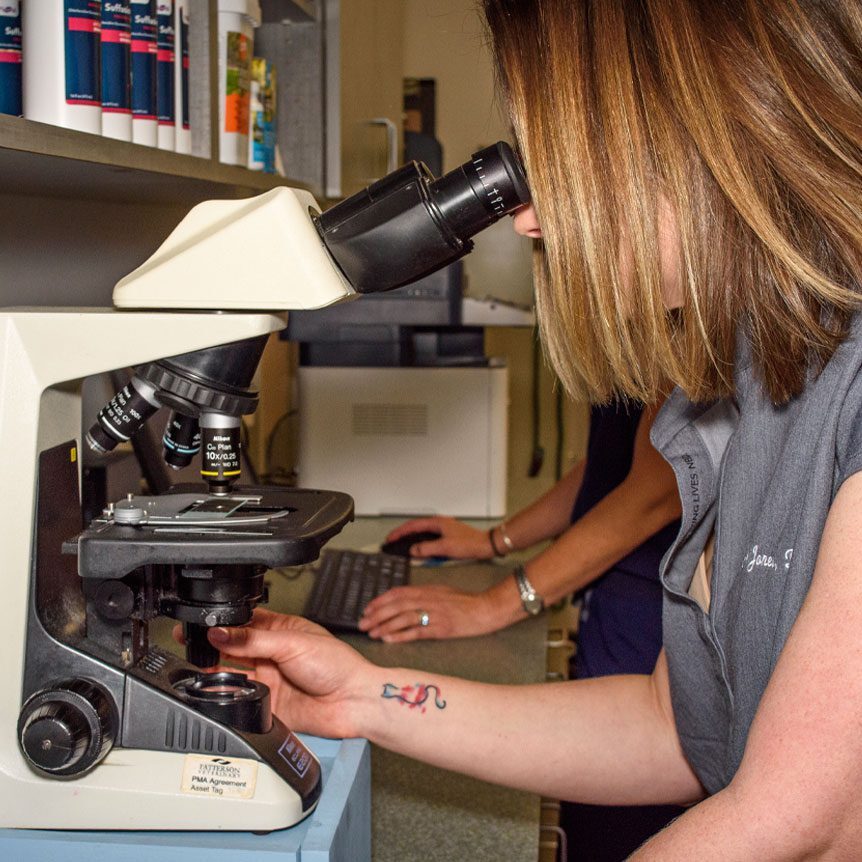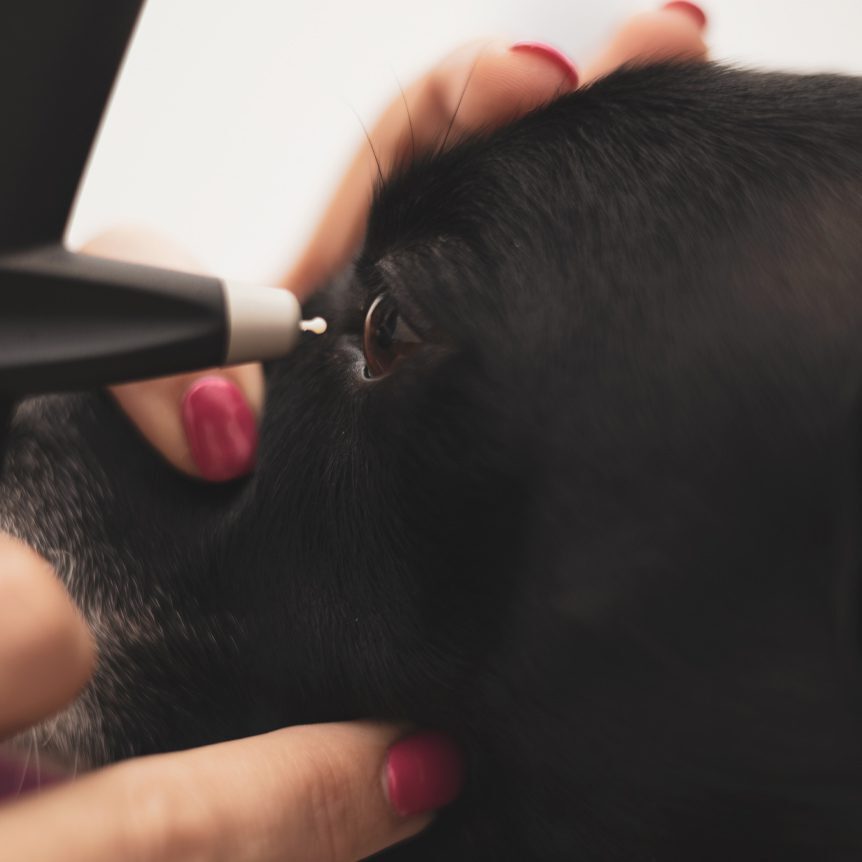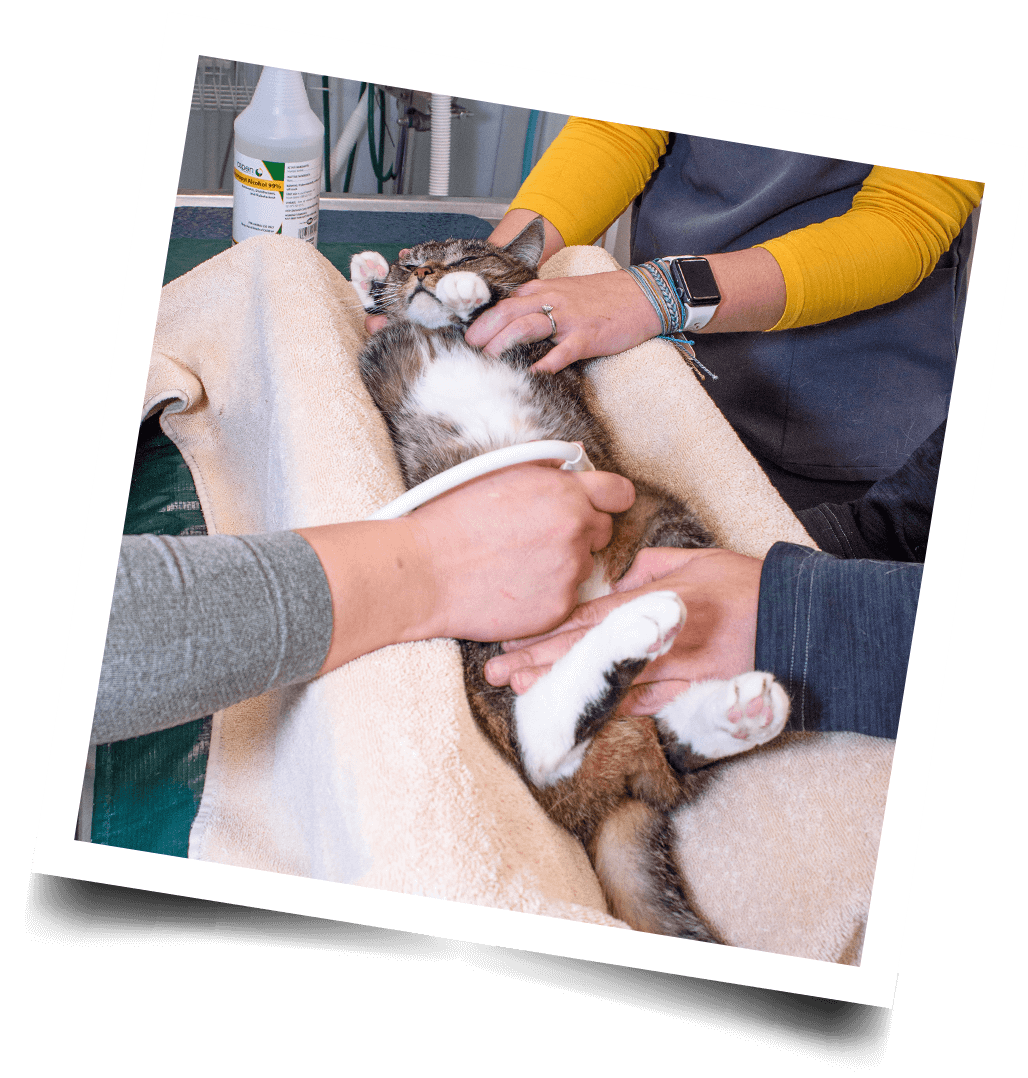
About Our In-House Laboratory
Our clinic’s sophisticated in-house laboratory allows us to perform a variety of tests of the blood, serum, feces, urine, and other body fluids, with results often available within 30 minutes. This capability is essential for pets with urgent medical needs, and for pets who need pre-anesthetic testing before surgery at our clinic. For pets that are stable and healthy, we typically send testing out to reference labs to ensure thorough results.
Tests we can provide include:
- Blood chemistries
- Coagulation times
- Complete blood counts (CBC)
- Thyroid testing
- Skin cytologies
Tonometry
Using a Tonovet and a Tonopen machine, our veterinarians are able to perform tonometry, a procedure that measures intraocular (IOP) pressure (pressure within the eye). An IOP reading that is higher than normal may indicate glaucoma, which can damage the eye’s optic nerve and lead to vision loss. A low IOP reading could indicate intraocular inflammation (uveitis), which is also a painful condition and often requires special therapy.


